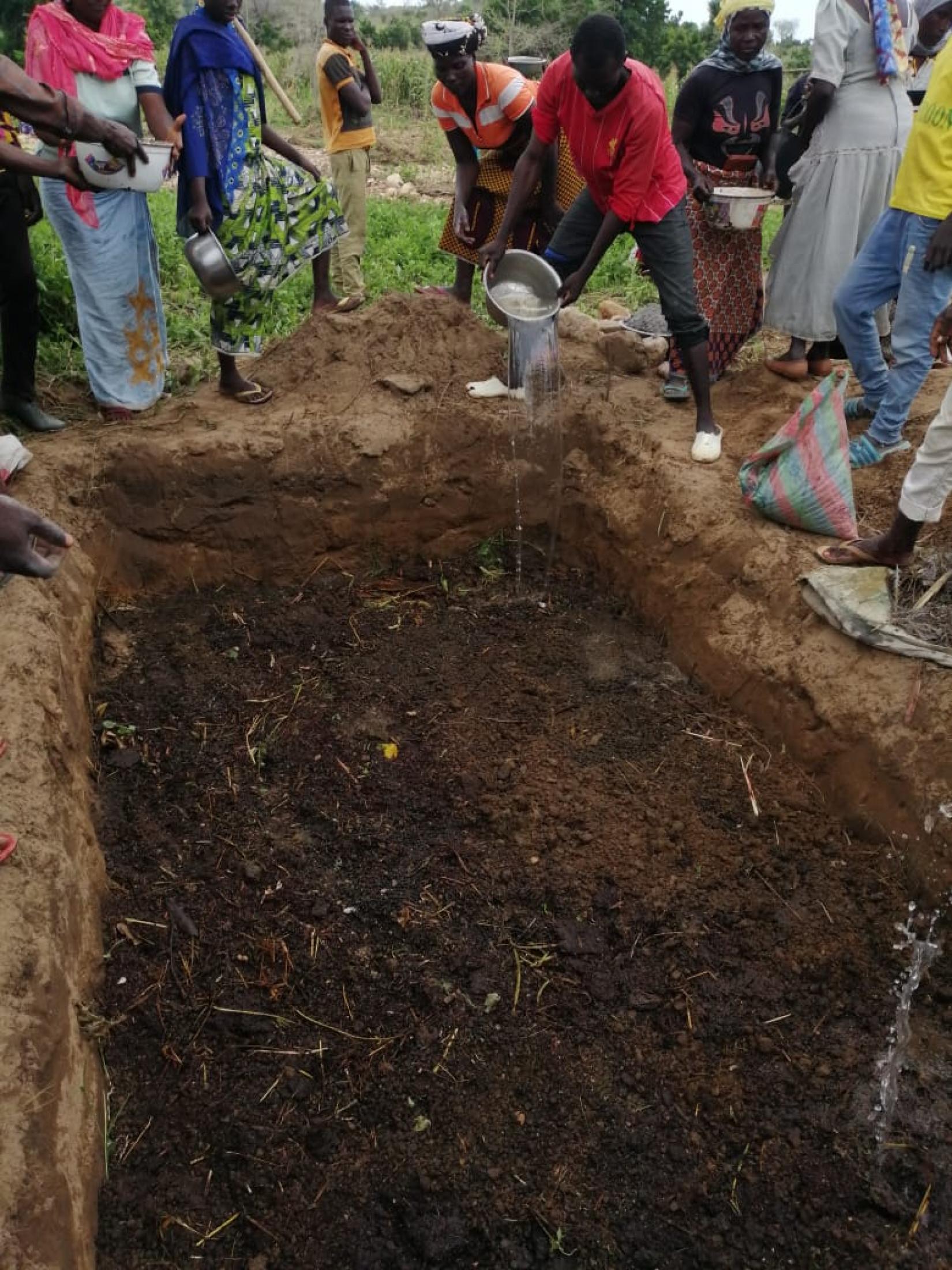WFP provides a package of services to vulnerable communities to make them resilient and live in peace in the Far North region
Serahadja is one of the WFP selected localities because of its vulnerability to food insecurity.
WFP's intervention in Cameroon consists of a package of services which, in addition to meeting the urgent needs of vulnerable people confronted with food insecurity and malnutrition, provides them with the means to cope by themselves with crises with which they are faced.
Serahadja, a small community in the Mayo Sava division in the Far North region, located about 34 kilometers from the town of Maroua, is an example of WFP’s integrated programme creating synergy and solidarity within communities. They are mobilized to work together on assets creation and receive from WFP capacity building sessions and empowerment to make their life easier and peaceful.
Impact of the FFA program on children schooling in Serahadja
Serahadja is one of the WFP selected localities because of its vulnerability to food insecurity. This situation is mainly caused by the Boko Haram crisis and the effects of climate change. To make vulnerable people more resilient in Serahadja, WFP has been supporting the creation of assets through its resilience and livelihoods programmes. These interventions strengthened about 300 vulnerable households with resources, knowledge, and skills to build their livelihoods.
The grave aftershock of violent extremist activities in communities of Mayo-Sava including Serahadja resulting in many children had deserted schools due to poverty. Thanks to WFP assistance Food for Assets through its cooperating partners, a cooperative was created. This cooperative inspired the grouping of some villagers to form an association of 30 members who decided to engage in the production of cereals on a common farm.
“There was a period in our community when most of our children were out of school but with sales from the produce from our farm, each member of our association was able to pay tuition fees for our children…the cooperative was of help to us because we learnt improved techniques such as seed rating, row spacing sowing, seed density respect and replacement, ploughing before seeding… which impacted positively on our harvests this farming year 2022 ” testified Mrs. Dogdje, an association member and participant in Food for Asset programme. The food from the association’s farm was consumed by households of members as well as sales made to maintain the children of each member in school and ensure their literacy.

Organic fertilizer improves agricultural productivity in Serahadja: Composting Techniques Transferred
The village of Serahadja, like several other villages in the Far North region of Cameroon, face the problem of low agricultural productivity due in part to inadequate management of soil fertility. Since 2020 WFP and its cooperating partners are building participant’s capacity on improved production techniques including production and utilization of organic fertilizer. Many participants were inspired by trainings and new agricultural technique used during WFP- Food for Asset interventions. And some of them stood out by the application of knowledge acquired from trainings to the personal farms. Kellou Yanouse showcased the changes she had on her onion farm after applying cow dung instead of chemical fertilizers. She said, “Before I could barely have 9 – 10 bags of 140kg each of onions on 230m2. I realized in 2020 that the application of chemical soil fertilizers accelerated soil degradation, reason for my farm yields decreasing. But now I’ve gone up to 16 bags on the same space when I applied cow dung and using farming techniques acquired from the project...”
This year, after the training and demonstration on composting techniques, Kellou Yanousse and other beneficiaries of WFP programme decided to apply composting techniques learnt during a training on the farm after learning the importance of compost. “We will produce compost in our house and farm. We are convinced that with the utilization of compost our agricultural production will increase. We will teach other women in our community because if we use organic soil fertilizers it will help us fight against environmental hazards our community is faced with and our soils will be enriched yet further” she said.
Cash Based Transfer, a modality that requires a national identification document from beneficiaries
To meet the Sustainable Development Goals and achieve “Zero hunger” challenge in 2030, WFP in Cameroon stays committed in leaving no one behind, working closely with local communities and offering a package of services that empower them and make them resilient.
In Serahadja, 1,500 individuals, comprising 70% women were assisted through Cash Based Transfer; a modality that requires the provision of national identity document by the beneficiary. This is very often a great challenge for the beneficiaries of Serahadja.
Hadidja, a host population with 3 children, is one of the beneficiaries in Serahadja who is trapped in a web of nonidentification. She complained “we do not know what else to do to obtain ID cards. It is extremely complicated for us given the high cost demanded especially when one does not possess a birth certificate…”
The cash transferred by WFP enabled beneficiaries to meet their immediate food needs and invest in their livelihoods.
“The population of Serahadja is relieved of the stress of having to deal with law enforcement because of identification struggles. Before now, beneficiaries had serious problems with alternates especially during cash withdrawals but that has been handled now and we are grateful to the NGO EFA Cameroon and WFP for facilitating the process for us…” testified Hassan the traditional leader of Serahadja.
Upon arrival of WFP cooperating partner EFA Cameroon, about 70% of participants had been working with alternates for cash transfers because the ID cards were either invalid or nonexistent. Field agents engaged in repeated verifications and sensitizations for one to two months. So, WFP Maroua Field office facilitated the obtention of valid ID cards by advocating at the level of the Mora Council; and now 95% of participants who are representative of the community presently own valid ID cards.











